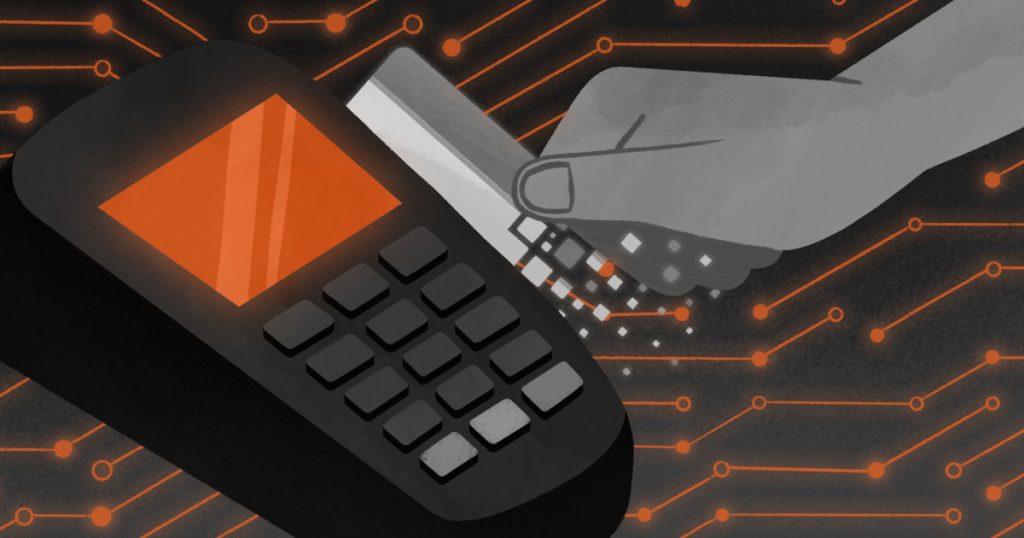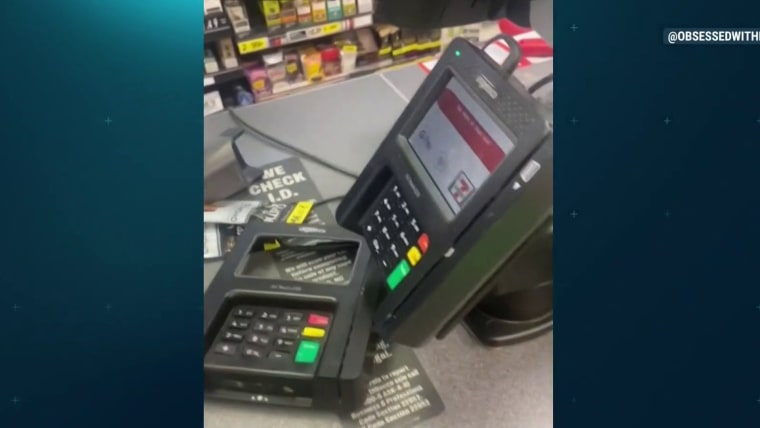
A lawsuit on behalf of New York state residents who were electronically robbed of the funds they use for groceries seeks to have the victims reimbursed by the U.S. Agriculture Department, alleging that failure to do so is in violation of federal law.
The federal lawsuit against the USDA was filed Wednesday morning by the Legal Aid Society, a New York-based nonprofit legal services provider, and law firm Freshfields Bruckhaus Deringer. The class-action suit represents six plaintiffs and intends to represent thousands of other New York state residents who participate in the Supplemental Nutrition Assistance Program, or SNAP, and whose benefits were also skimmed.
The complaint claims the limited scenarios under which the USDA currently authorizes states to use federal money to reinstate SNAP benefits are not compliant with a congressional mandate, which says grocery funds stolen before the recipient receives them must be replaced. Skimming is not one of those scenarios.
It comes as reports of SNAP skimming have grown nationwide. The theft is done by placing hidden devices on card readers’ keypads to electronically steal account information, often without the victim or store owners knowing.
In New York state alone, there have been more than 10,600 incidents of SNAP skimming since January, with victims robbed of more than $4.6 million worth of benefits in total, according to recent data from the state’s Office of Temporary and Disability Assistance.
Yet because the federal government does not currently cover the cost of replacement funds, few states have reimbursed the victims.
The omnibus bill passed in December provided some help. It included a provision for the replacement of stolen SNAP funds with federal dollars that allows up to two months’ worth of skimmed benefits to be reinstated, but it applies only to victims skimmed from October 2022 through September 2024.
“It’s unconscionable that low-income households already struggling to make ends meet are forced to bear the cost of skimmed food benefits.”
Alex MacDougall, staff attorney at the Legal Aid Society
Wednesday’s complaint argues that those measures do not go far enough and is seeking complete restoration of every New York state resident’s stolen SNAP benefits dating back to January 2022, regardless of the amount stolen.
“It’s unconscionable that low-income households already struggling to make ends meet are forced to bear the cost of skimmed food benefits,” Alex MacDougall, staff attorney at the Legal Aid Society, said in an interview. “It quite literally takes away the ability of parents to feed their children.”
Few protections, little recourse
Typically, thieves place skimming devices on the card-swiping machines by cash registers. The devices are plastic keypad overlays that look nearly identical to the card reader terminals themselves. (See a picture of the skimming overlays here.)
“Oftentimes people don’t realize they’ve been stolen from until they’re at the cash register with a cart full of groceries,” said Ashley Burnside, a senior policy analyst at the Center for Law and Social Policy (CLASP), who is not involved in the federal lawsuit. “It’s devastating for people to then realize, after they go through the hoops of calling their SNAP agency reporting the crime, that they don’t have any options for reimbursement.”
SNAP benefits, formerly known as food stamps, are issued monthly onto electronic benefits transfer, or EBT, cards. While skimming is not unique to EBT cards, security measures such as contactless payments and embedded microchips have combated it in the credit card industry. No SNAP state agency uses cards with chips, according to the USDA.
Before switching to an electronic system, food stamps were issued in paper form, and the USDA would replace them if they got stolen in the mail before participants received them.
Current regulations based on a 2010 policy limit states’ ability to replace electronic benefits using federal funds primarily to cases of “household misfortune” — situations when food purchased with EBT funds is destroyed in a fire, for example, or after the physical card itself was reported stolen from a participant.
Wednesday morning’s lawsuit alleges that because a 1996 mandate declared that stolen electronic transfer SNAP benefits should get replaced in the same manner as stolen paper coupons were, it’s illegal for the USDA to not replace skimmed benefits.
In a statement, the USDA said it does not comment on ongoing litigation.
The theft of benefits can be disastrous for families who are already financially stretched. A mother who lives in New York public housing and asked not to be identified because she was discussing her personal finances said that since she was skimmed out of more than $2,000 several months ago, she has put rent money toward food instead — and is now behind on rent payments.
She was shocked the day she discovered she had been skimmed.
“I just broke down. I was crying. My kids were trying to pat me, and I’m like, ‘Oh my goodness, oh my gosh. All of our money is gone,’” she said.
Tuesday’s complaint is believed to be the first federal lawsuit regarding SNAP skimming, according to the attorneys. In November, a class-action lawsuit was filed in Massachusetts against the state agency that administers SNAP benefits on behalf of skimming victims in that state.
While the federal lawsuit seeks restoration of benefits for New York state skimming victims, it could have implications for the rest of the country, MacDougall said.
“Any change in SNAP policy or regulation will obviously impact all SNAP recipients nationwide,” she said. “If we prevail in the case, it’ll set a precedent for similarly situated folks.”
The lawsuit comes amid growing calls to strengthen the security of SNAP EBT cards to prevent others from being victimized in the future. Something as simple as text alerts sent to recipients when their card has been used out of state would be a helpful start, Burnside said.
“The card is susceptible to theft because it has not been kept up to marketplace protections and recipients are then left vulnerable, but also left with no recourse once their funds are ultimately stolen,” she said. “It is absolutely heartbreaking.”

 Latest Breaking News Online News Portal
Latest Breaking News Online News Portal





